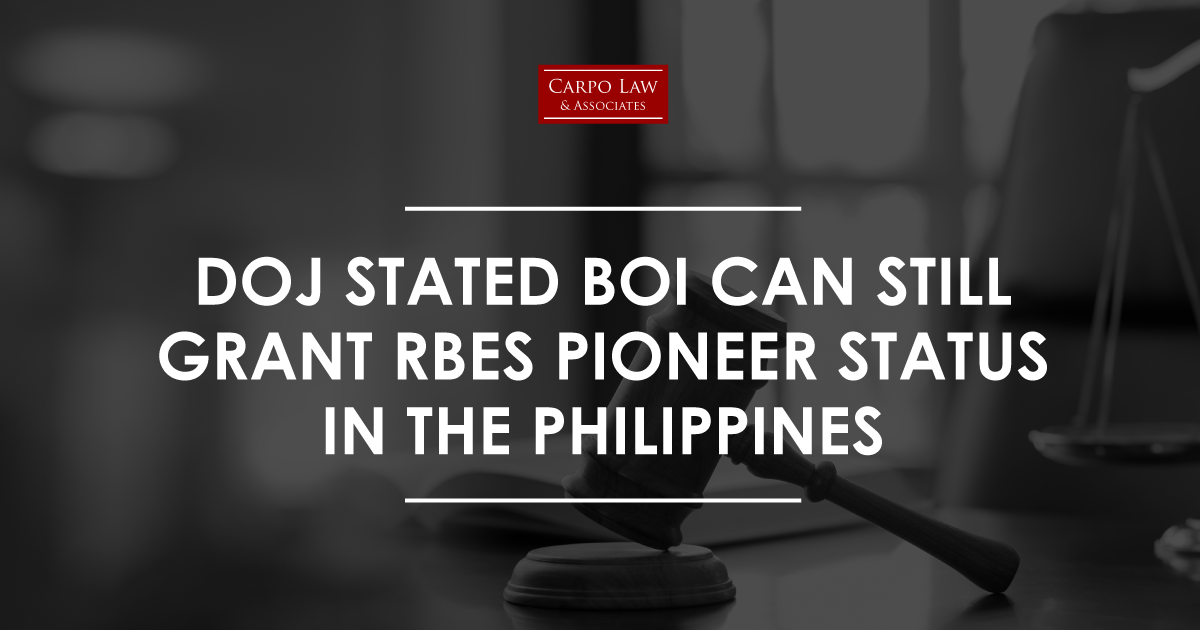
DOJ Stated BOI Can Still Grant RBEs Pioneer Status in the Philippines
The Department of Justice (DoJ) stated in a legal opinion that the Board of Investments (BoI) authority to grant pioneer status to registered business entities (RBEs) was not diminished by the Corporate Recovery and Tax Incentives for Enterprises (CREATE) law.
Additionally, it discovered no conflict between the pioneer status granted and the local government units’ (LGUs’) jurisdiction to offer local business tax (LBT) exemptions.
Pioneer businesses manufacture products or raw materials that were not produced in the Philippines before.
Mr. Pascual asked the DoJ regarding whether the legal foundation for the LBT exemption of companies registered with the BoI had been undermined by the CREATE law and whether the BoI could still certify RBEs as pioneer enterprises.
Mr. Vasquez noted “It appears the intention of the framers of the CREATE Act is to rationalize and delineate into one menu the tax incentive system.”
In addition, he cited, “The fundamental rationale behind the current principle of local fiscal autonomy lies in the principle of empowering local government units and ensuring their sustainability and self-reliance through the direct conferment of comprehensive and extensive tax powers.”
He pointed out that the opinion was not legally binding and was just intended as guidance.
He claimed that although the BoI only categorizes RBEs, LGUs are able to provide exclusions to LBTs.
RBEs are free from LBT under the Strategic Investment Priority Plan for a period of six years (pioneer) or four years (non-pioneer) as per a memo circular published by the BoI in 2022. In order to determine whether the document had legal basis, the BoI had consulted the Justice Department.
The DOJ stated that they could not form an opinion on the matter since there are insufficient facts in BOI’s memo.
Mr. Vasquez mentioned “It would require us to make assumptions about the circular, not apparent in the query.”
Furthermore, he cited “The Secretary of Justice does not render opinions on questions the resolution of which hinges on factual matters that are not readily discernible from the query.”

